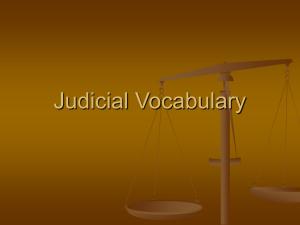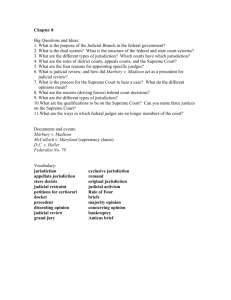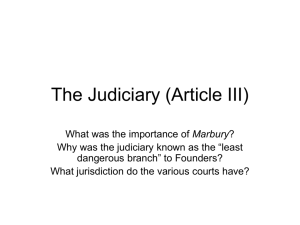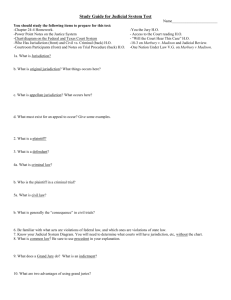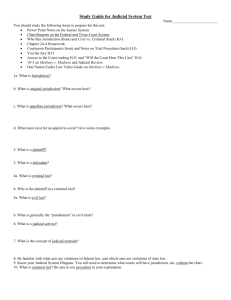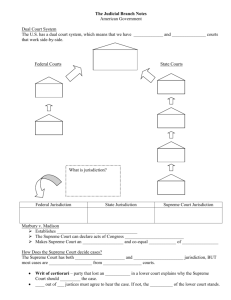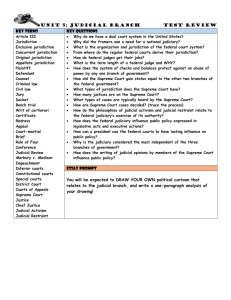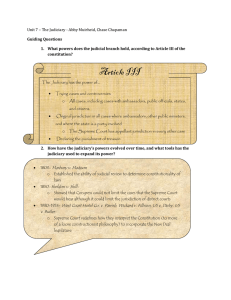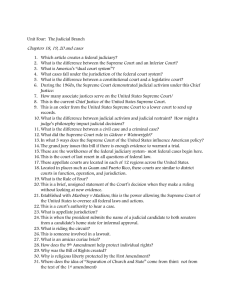Judicial Review
advertisement
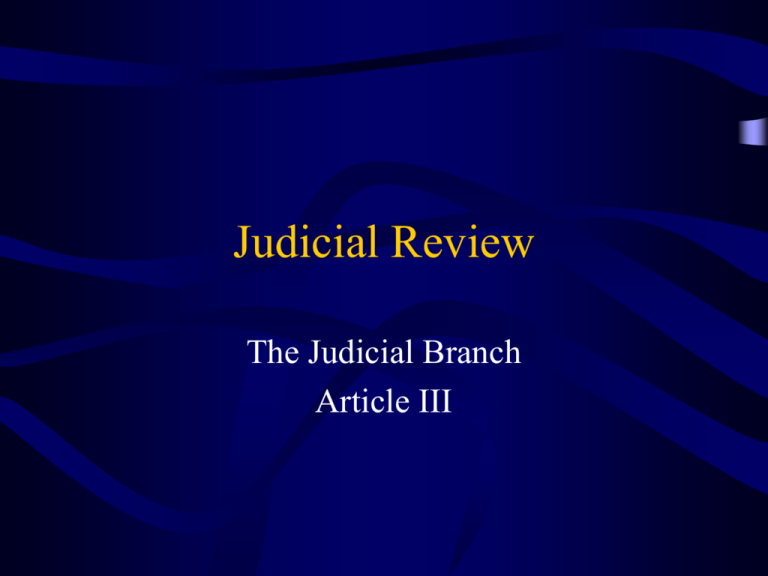
Judicial Review The Judicial Branch Article III Jurisdiction • Original jurisdiction: where the case is heard first, usually in a trial. • Appellate jurisdiction: cases brought on appeal from a lower court. Original Jurisdiction • Ambassadors • Public Ministries and Consuls • Issues where the states is one of the parties Appellate Jurisdiction • Laws if the United States • Law and Equity under the Constitution Judicial Review • Definition: the right of the federal courts to rule on the constitutionality of laws and executive actions. • It is the chief judicial weapon in the checks and balances system. • Controversy – Federalist Paper #78 • The least feared branch = the least dangerous • It cannot enforce its decisions • Only the courts can ensure the limits of the constitution Marbury v. Madison Marbury v. Madison (1803): The Supreme Court could declare a congressional act unconstitutional Supreme Court Decision in Marbury V. Madison • Marbury is entitled to the commission, but: – The Court cannot issue the writ because the Judiciary Act of 1789, is unconstitutional. – The Supreme Court of the United States has the power to review acts of other branches and determine their constitutionality. • This power is called judicial review. • Article III, Section 2 lays out the original jurisdiction of the Supreme Court – "In all Cases affecting Ambassadors, other public Ministers and Consuls, and those in which a State shall be a Party, the supreme Court shall have original Jurisdiction." Arguments for Judicial Activism • Courts should correct injustices when other branches or state governments refuse to do so. • Courts are the last resort for those without the power or influence to gain new laws. Arguments Against Judicial Activism • Judges lack expertise in designing and managing complex institutions. • Initiatives require balancing policy priorities and allocating public revenues. • Courts are not accountable because judges are not elected.
